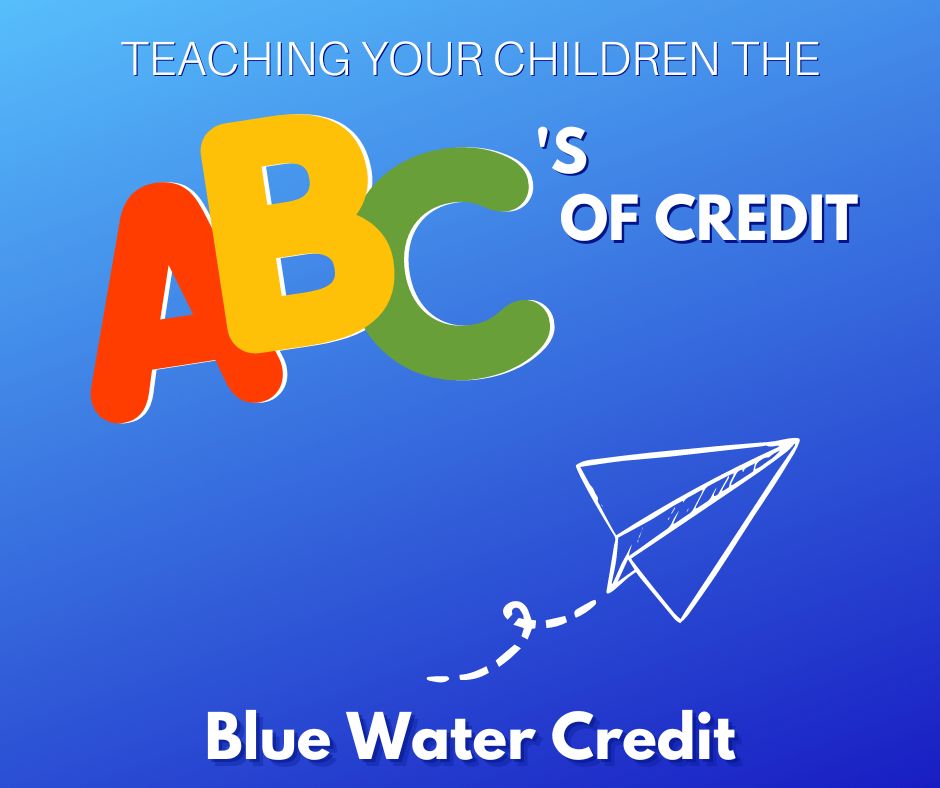 It’s back to school season, and so as we send our little ones off to yet another year of learning, growing, and become better versions of themselves, we thought it was important to cover an important lesson that starts at home: how and when to teach children about credit scores.
It’s back to school season, and so as we send our little ones off to yet another year of learning, growing, and become better versions of themselves, we thought it was important to cover an important lesson that starts at home: how and when to teach children about credit scores.
In a world driven by financial decisions that are often dictated by your credit history, offering these early lessons to children is a gift that will pay dividends for many decades to come.
A solid understanding of these concepts empowers them to make informed financial choices as they grow into responsible adults. By gradually introducing age-appropriate information, parents can help their children build a strong foundation for financial success.
“Empowering young minds with a solid foundation of responsible credit and debt practices is a gift that lasts a lifetime, nurturing financial confidence and wise decision-making,” says Jeff Sipes, President of Blue Water Credit.
So, in this blog, we’ll discuss what credit scores and credit reporting are, how to teach these concepts to children at different ages, and the importance of instilling responsible financial habits.
Of course, if you have further questions or need help, just reach out to Blue Water Credit! The ABCs of Credit Scores, Credit Reporting, and Debt
First, let’s cover the three overriding principles that we’ll want to impart upon our children, no matter what ages they are.
Credit Score:
A credit score is a numerical representation of an individual’s creditworthiness. It is a reflection of their financial history and behavior, summarizing their ability to manage debt responsibly. Credit scores typically range from 300 to 850, with higher scores indicating better creditworthiness.
Credit Reporting:
Credit reporting involves the compilation and maintenance of a person’s credit history, including their payment patterns, outstanding debts, and credit applications. This information is used by lenders to assess the risk associated with lending money to an individual.
Credit bureaus, also referred to as credit reporting companies or consumer reporting agencies, gather and retain financial information concerning individuals, which is provided by creditors including lenders, credit card firms, and other financial establishments. It’s important to note that creditors aren’t obligated to submit data to all credit reporting companies.
Debt Management:
Your habits and history with managing debt are reflected both on your credit history and in the credit score that ensues. Paying monthly bills on time, not taking on too much debt, paying down debt, and the pitfalls of interest and minimum payments, etc. should be part of the conversation.
Teaching Credit Basics to Children at Different Ages
- Early Childhood (Ages 3-7):
At this stage, focus on introducing basic money concepts to lay the groundwork for future learning.
- Introduce Coins and Bills: Teach your child about the different types of coins and bills, their values, and their uses.
- Needs vs. Wants: Help them understand the difference between things they need (like food, clothes, and shelter) and things they want (like toys and games).
- Saving Money: Encourage them to save a portion of their allowance or gifts in a piggy bank to buy something they want later.
Tip: Early on, game-ify lessons about money, debt, and credit with your children, such as with games like Monopoly or other fun activities.
- Middle Childhood (Ages 8-12):
As your child’s understanding of money matures, start discussing more advanced concepts.
- Budgeting: Teach them the importance of budgeting by planning how to allocate their money for different purposes.
- Earning Money: Introduce the idea of earning money through chores or other age-appropriate activities.
- Setting Goals: Help them set savings goals for short-term items and discuss the idea of saving for bigger purchases in the future.
- What is your credit score: At this age, they’re ready for the fundamentals of credit scoring and credit history.
- Early Teens (Ages 13-15):
At this stage, you can begin discussing credit scores and reporting in a simplified manner.
- Explaining Credit: Introduce the concept of credit as borrowing money that needs to be paid back.
- Credit Score Basics: Explain that a credit score shows how well a person manages credit and that it’s important for future financial opportunities.
- Responsible Borrowing: Discuss the importance of responsible borrowing and how it affects creditworthiness.
- Mistakes with credit and debt and the negative effects of a bad credit score.
- Late Teens (Ages 16-18):
As your child approaches adulthood, delve deeper into credit concepts and financial responsibility.
- Credit Reports: Explain how credit reports contain information about borrowing history, payment patterns, and how lenders use this information.
- Building Credit: Discuss strategies for building good credit, such as paying bills on time and using credit responsibly.
- Credit Cards: Introduce the concept of credit cards, emphasizing their responsible use and potential pitfalls. At this age, you may even consider a secured credit card or a credit card with your child as the authorized user so they can practice building good credit on a smaller scale.
- Long-Term Financial Goals: Encourage discussions about future financial goals, like buying a car or attending college, and how credit scores can impact these goals.
Importance of Teaching Credit Basics
- Empowerment and Responsibility:
Teaching children about credit scores and reporting empowers them to make informed financial choices. They’ll understand the implications of their actions on their financial future, fostering a sense of responsibility.
- Avoiding Debt Traps:
By understanding the consequences of excessive debt and how it affects credit scores, children are less likely to fall into debt traps as adults.
- Building Financial Habits:
Early exposure to financial concepts encourages the development of healthy financial habits. Children who learn to manage money responsibly are more likely to carry those habits into adulthood.
Future Financial Success:
A strong foundation in credit and financial literacy equips children with the skills they need to navigate complex financial decisions and achieve long-term success.
***
Teaching children about credit scores, credit reporting, and responsible financial behavior is a crucial investment in their future.
By gradually introducing age-appropriate concepts, parents can empower their children to make informed financial decisions, avoid debt pitfalls, and build a solid foundation for financial success. As these young minds grow, they’ll carry the lessons learned into adulthood, reaping the benefits of a financially literate and responsible life.
At Blue Water Credit, we’re committed to educating and empowering you to make great decisions with credit, ensuring a brighter financial future. Of course, that starts with teaching our kids and youth about credit and debt, so remember to offer those lessons at home as they grow!





